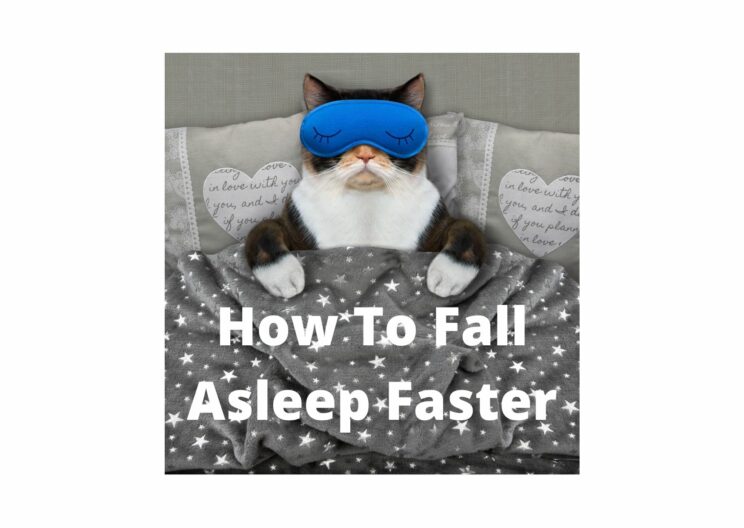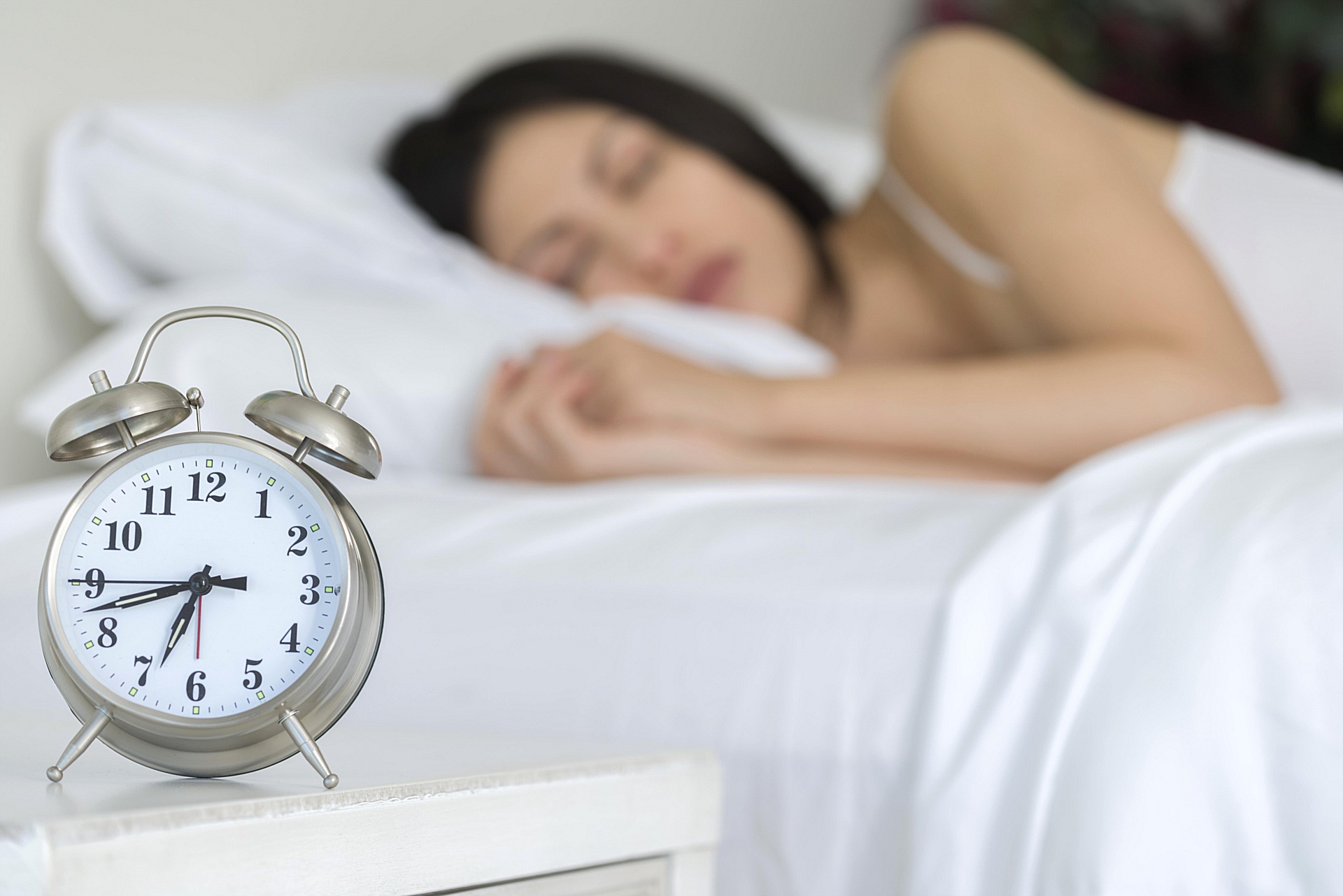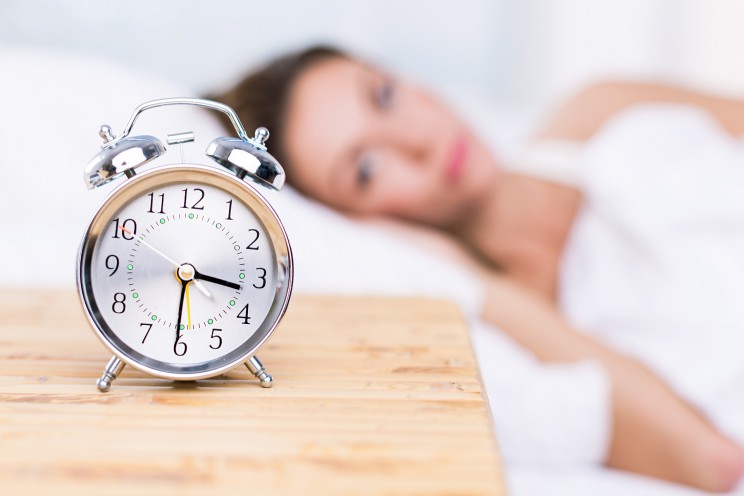Sleep has been the bane of my life ever since I was a little girl I am always searching for ways on how to fall asleep faster and also how to make sure you stay asleep all night.
When I was younger, I used to have problems going to sleep. Now that I am older I can fall asleep pretty quickly, but can’t seem to stay asleep for long. Then I wake up early hours of the morning, and I can’t get back into slumberland.
It is the most frustrating thing, so I have made it my mission to discover the secrets on how to fall asleep faster, and how to stay asleep all night.
Getting quality sleep is one of the most important things you can do to fight fatigue and research has shown that we need between 7 and 8.5 hours of sleep a night. Mental performance and reaction times peak with at least that amount of rest.
Please note that this post does contain affiliate links, which means that if you buy something off of this page, the owner of this website will get a small commission.
First of all, I am not into sleeping tablets. In desperation, I went and tried a few of the so-called natural ones that you don’t need a prescription for. They all worked quite well at getting you to relax and fall asleep, but boy when you wake up in the middle of the night, your mind starts racing and you just can’t get it to still. The problem was just exacerbated, and maybe sleeping pills don’t work for me.
What about a hot drink?
A hot milky drink was suggested before bed. This works quite well at getting to sleep faster, but I still couldn’t stay asleep all night. I tried Milo (gives you energy), Horlicks (gets one to fall asleep faster) and just plain hot milk with a touch of cinnamon.
I have recently gone onto Chamomile Tea, and have found that it works fantastically so far. You can read more about Chamomile Tea here.
Another great remedy that works very well that I have recently discovered is this concoction:
Mix together 1 teaspoon of pink Himalayan salt and 5 teaspoons of raw honey.
Stir well and pour into a sealed jar.
Every night before bed, take half a teaspoon of this remedy and hold it under your tongue. It should be instantly absorbed. If you prefer, simply add it to a glass of warm water and drink it like tea.
Other ways to fall asleep faster include:
- Setting the vibe with soft and relaxing lighting.
- Switching scrolling for reading a book.
- Creating a consistent bedtime routine that calms your mind.
- Avoid heavy meals, spicy foods, alcohol or caffeine before bed. Give your body enough time to digest a hearty meal before bedtime.
- Aiming for 7 – 9 hours of solid sleep.
- Enjoying magnesium-rich foods like leafy greens, nuts, and seeds to help your muscles relax.
- Sipping on chamomile tea in the evening to ease into rest mode.
The Stages Of Sleep
REM
The one where you dream and your brain does its most intense memory and learning work.
Light Sleep
The one where your body starts to relax and recharge.
Deep Sleep
The one where your muscles repair and energy gets restored. Now we’re talking.
Awake
The one where you’re half-conscious, but your body is prepping to fully wake up.
There are five stages of sleep. Throughout the night you will cycle through all five stages, each cycle lasting 90 – 110 minutes.
Stage 1:
You become drowsy, your muscle activities and eye movements slow down. You sometimes twitch and you are easily wakened.
Stage 2:
Breathing, heart rate, and temperature decrease. Your brain waves get slower with brief spikes.
Stage 3:
Your brain produces delta waves (large and slow) with some quick, short spikes. This is when your heart rate and breathing are slowest.
Stage 4:
Your breathing is rhythmical, eye movements have stopped and muscle activity is at its slowest. Brain waves are large, slow, and calm.
Stage 5:
Your brain is active and you experience vivid dreams. Your heart rate increases and your breathing becomes rapid and more irregular. Your eyes are active and your limbs are paralyzed.
Stages 3, 4, and 5 are considered the deep sleep stages.
Reasons One May Not Be Able To Sleep
Here are some of the reasons you may be suffering from insomnia in the first place:
- Noise levels (even if it is background noise).
- Major life changes.
- Excessive light including light from cell phones and other devices.
- The temperature of the room. It should be between 15 – 19.5 degrees Celsius.
- Illness, stress, pain, anxiety, or depression.
- Medication side effects.
- Restless legs syndrome.
- Insufficient exercise or exercise too close to bedtime.
- Sleep apnoea (a condition where breathing stops and starts repeatedly).
- A restless or disruptive sleep partner.
- Caffeine or alcohol in the evenings makes it difficult for the body to relax and enter deep sleep. They also make it difficult for the body to stay asleep.
- If you need to take a nap, do so early or midafternoon, not a few hours before your regular bedtime.
More Tips On How To Fall Asleep Faster

- Make sure you have a comfortable mattress.
- Buy a comfortable pillow.
- Wear cool comfortable clothing to bed, even if it is ugly.
- Some people can only fall asleep with the TV on. If you do, make sure you set the sleep button so it doesn’t wake you up later in the night.
- Try to develop a bedtime ritual like a warm bath or reading a book before bedtime.
- Get at least 15 – 30 minutes of natural sunlight during the day.
- Read a boring book.
- Turn off electronic gadgets.
- Try to get your mind off the worries of the day by making up a relaxing or fantasy story in your mind.
- Avoid caffeine and alcohol before bed as these stimulate your nervous system.
- Breath deeply.
- Calcium is a natural relaxing agent, along with several other vitamins, such as the B vitamins and magnesium.
- Don’t eat a heavy meal just before bedtime.
- Turn off the TV as nodding off in front of the TV has proven to be one of the least relaxing ways to fall asleep. Instead of watching TV before bed, step outside and breathe some fresh air or look at the stars. Take a break to restore perspective and let your mind prepare for rest. TV does not do this.
- Regular exercise promotes sleep, but not too close to bedtime or it will have the opposite effect.
- Try to keep your bedtime at the same time each evening. Waking up should also be at the same time each morning, even on weekends.
- Don’t stress (or try not to) about not being able to go to sleep.
- Make sure if you have a clock with digital numbers that it isn’t staring at you as you lie in bed. Sleep researchers have found that when there is a clock to be seen, people are more likely to wake repeatedly throughout the night to check the time.
- Make sure you have enough magnesium in your system. Lack of this mineral is another cause of your muscles being unable to relax and let you sleep.
- Practise 4 – 7 – 8 breathing to drift off faster. Press the tip of your tongue behind your top front teeth and exhale until your lungs feel empty. Slowly breathe in through the nose for a count of four. Hold the breath for seven, then exhale through the mouth so that the breath makes a whooshing sound for a count of eight. Repeat four times. If you can’t hold your breath for that long try a 2 – 4 – 4 rhythm instead.
- Put a couple of drops of pure lavender essential oil under your pillow as this also helps with sleep and anxiety.
- Click here for more sleep ideas.
Sleeping Posture Makes A Difference
One often overlooked cause of daytime fatigue is nighttime posture. Here are some tips to help you get a better and more comfortable nighttime posture:
- Be sure you are warm enough. If you have to stay curled up all night to keep warm, your back will get sore.
- If you’re lying on your back, a pillow under the knees comfortably flexes your lower spine and eases strain.
- To avoid neck and shoulder aches, use a pillow that’s low enough to support your head without flexing your neck. Down pillows work best for this, as foam ones are often too springy.
- Make sure you have enough room in your bed. It’s normal to move your arms and legs during the night, so have enough room to do it.
- If you tend to snore, you may want to look at sleeping on your side for a better night’s rest.
Some Interesting Sleep Facts
Did you know that Victorian-era diaries show that before the arrival of electric light, adults slept ten hours at night, waking at around 2 am or 3 am to do work, and then going back to sleep until the sun rose?
This is called biphasic sleep and some scientists consider it to be a more normal way of sleeping than sleeping in solid eight-hour chunks.
Have you ever experienced a hypnic jerk? This is when you are just drifting off to sleep feeling calm and comfy, and suddenly you are free-falling downwards, and just before you crash you are jolted awake.
This is called a hypnic jerk and it happens to at least 70 % of us. Scary as it feels, it’s just an involuntary twitch of the muscles which your brain interprets as falling.
Did you know that adding an additional hour of sleep can increase your daytime alertness by one-third, which is the energy of two cups of coffee? This extra hour can be derived only by going to bed an hour earlier. Sleeping late, as many of us do over the weekends, throws off your biological clock and can actually increase drowsiness, especially when reality hits at 06:00 on Monday morning.
Some Great Sleep Products
I recommend investing in quality bed sheets made of 100 percent cotton with a high thread count or even bamboo. My favorite set of sheets has a 270 thread count, and they are so soft and comfortable that they practically lull me to sleep.
A good pillow is the next thing you need to look at for a great night’s sleep. It should have great support for your head and neck and not make you too hot.
Let’s stop chasing quick fixes and start building long-term habits that nourish us from the inside out when it comes to supporting our sleeping habits and how to fall asleep faster.
![]()


Thanks for this informative post, I have a cousin who experiences difficult times with insomnia and tends to have trouble falling asleep, staying asleep throughout the night, or she wakes up too early in the morning.
I was searching for ways to help her get some sleep easily and all through the night when I came across this post. Thanks for sharing, I’ll share this post with her as well.
Thanks for the comment Seun and I hope it is able to help your cousin in some way.
The content on your web page is out standing. But I’m not sure what you are doing, are you trying to sell a home business or how fall asleep faster or to see if you can part of a $135 million dollars settlement or having people sign up for WA?
This is very confusing to me and this is the first thing I saw.
I think the last thing you want to do is confuse the reader. The reader needs to go on a small journey when they open your website.The beginning, middle and end. Everything else is secondary. Present it that way.
Believe me I am the last person to give out advice because I’m still trying to figure this out myself. So take my advice with a grain of salt.
Sorry if I was kinda mean, I didn’t want to be
Jimmy G
Hi Jimmy,
This website is aimed at Entrepreneurs and people who work for themselves online. The advice I like to give in different categories on my site is all to help entrepreneurs.
Sleep issues are something that a lot of entrepreneurs deal with, including myself, so my aim is to help people who are in the same boat as me.
I think that a lot of entrepreneurs are workaholics and they need to learn about ways to switch off and unwind after the day is done.
Thank you for your valuable comment and for stopping by.
I don’t usually have a problem with sleep, I fall asleep easily and stay that way until the morning. The only time I battle is if something is worrying me then I will wake up at about 3am with a very active brain.
The best solution for me when this happens is to concentrate on my breathing and when my mind wonders again bring it back to my breathing.
It works for me so give it a try next time you can’t fall asleep.
Thanks for the advice Debbie. The hardest part for me about doing that is not letting the mind wonder. But yes it works well if you can eventually quieter the mind.
I found this a fascinating article. It was interesting to learn the reasons why people have difficulty falling and staying asleep. Also, the stages of sleep helped me understand what I have experienced myself. For example, that sudden twitch after that falling sensation comes to an abrupt halt. I’ve experienced that many times.
Going to sleep and staying asleep has never been a problem for me. My favourite drink before going to bed is coffee. Go figure. I fall asleep watching TV. While watching a movie in the theatre even when the sound is loud. No problem with planes. The worrying thing is I have fallen asleep while driving and twice crashed into the car in front of me when it stopped.
My wife asked me to see a doctor and I was given sleep tests. As a result of that, I now have a CPAP machine. I don’t fall asleep while driving, but I do get drowsy at times. When that happens I play loud music or change the station to news or discussion programs that interest me to keep my mind alert.
Thanks for an interesting article that has given me a glimpse into the world of those who have problems falling asleep. This is a far different world than mine!
Edwin
Thanks for stopping by Edwin. My word your problem is rarer, and I am not sure which is the worse of the two.